road roller - all it takes!
hand push road roller
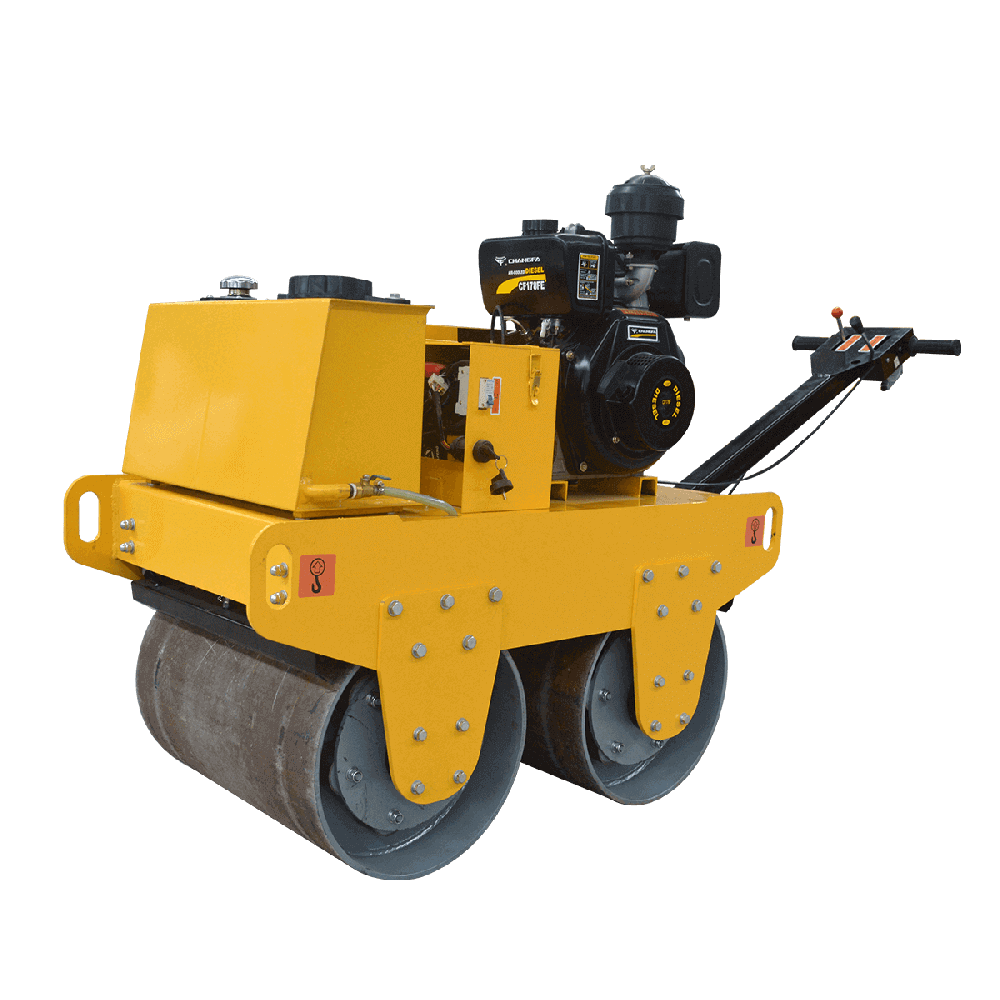
ride on asphalt road roller
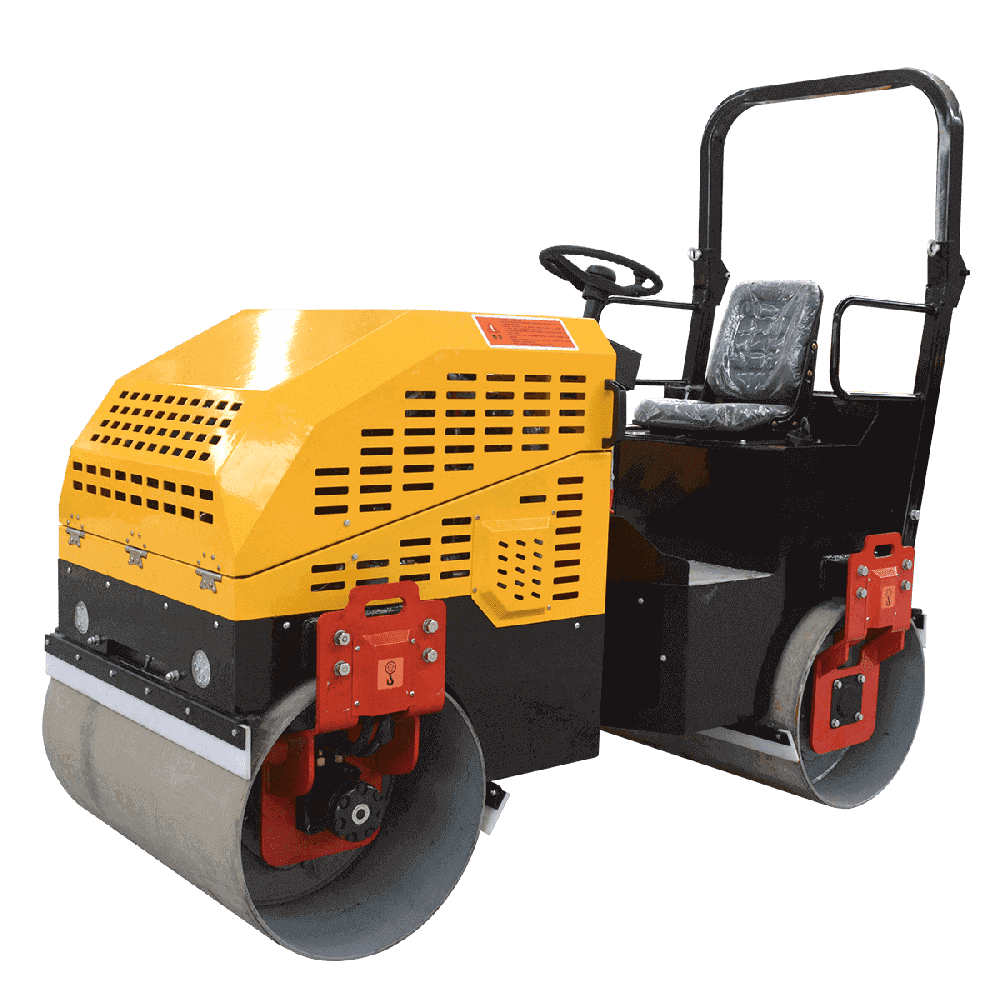
3.5t asphalt drum road roller
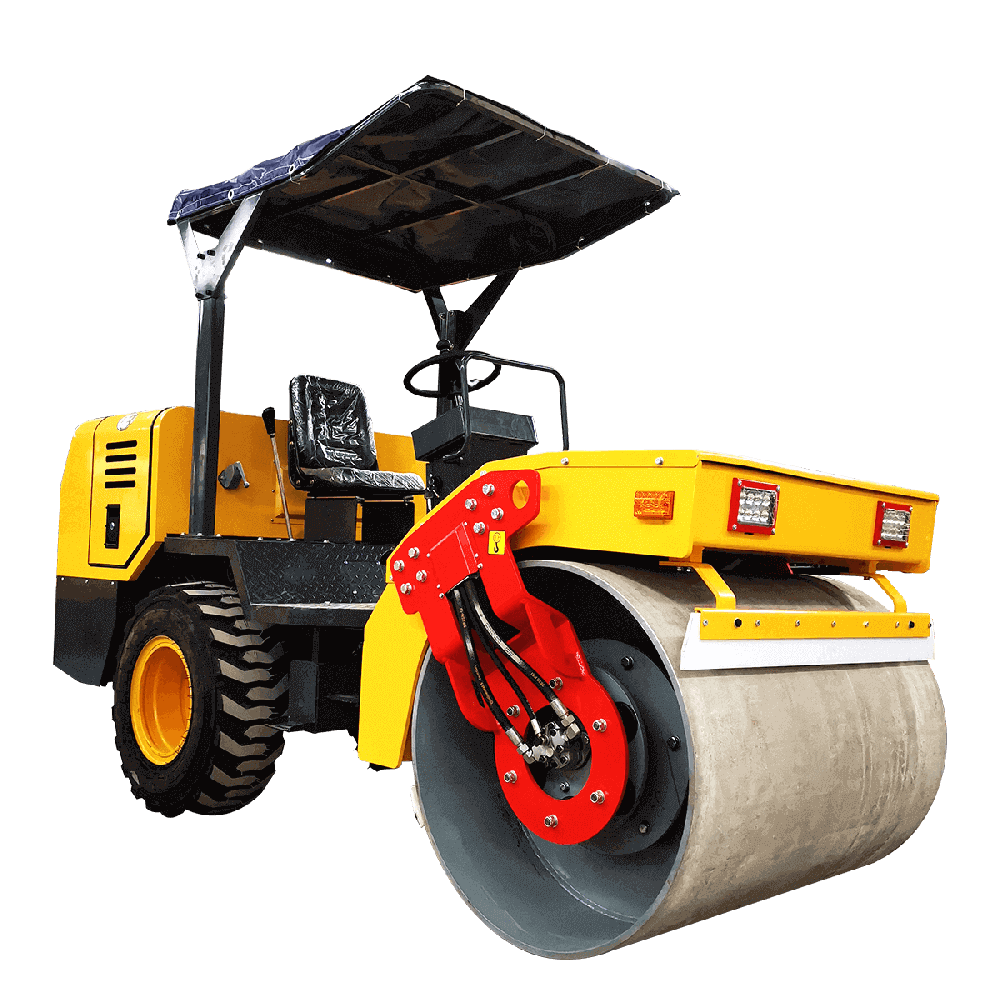
walk behind double drum road roller
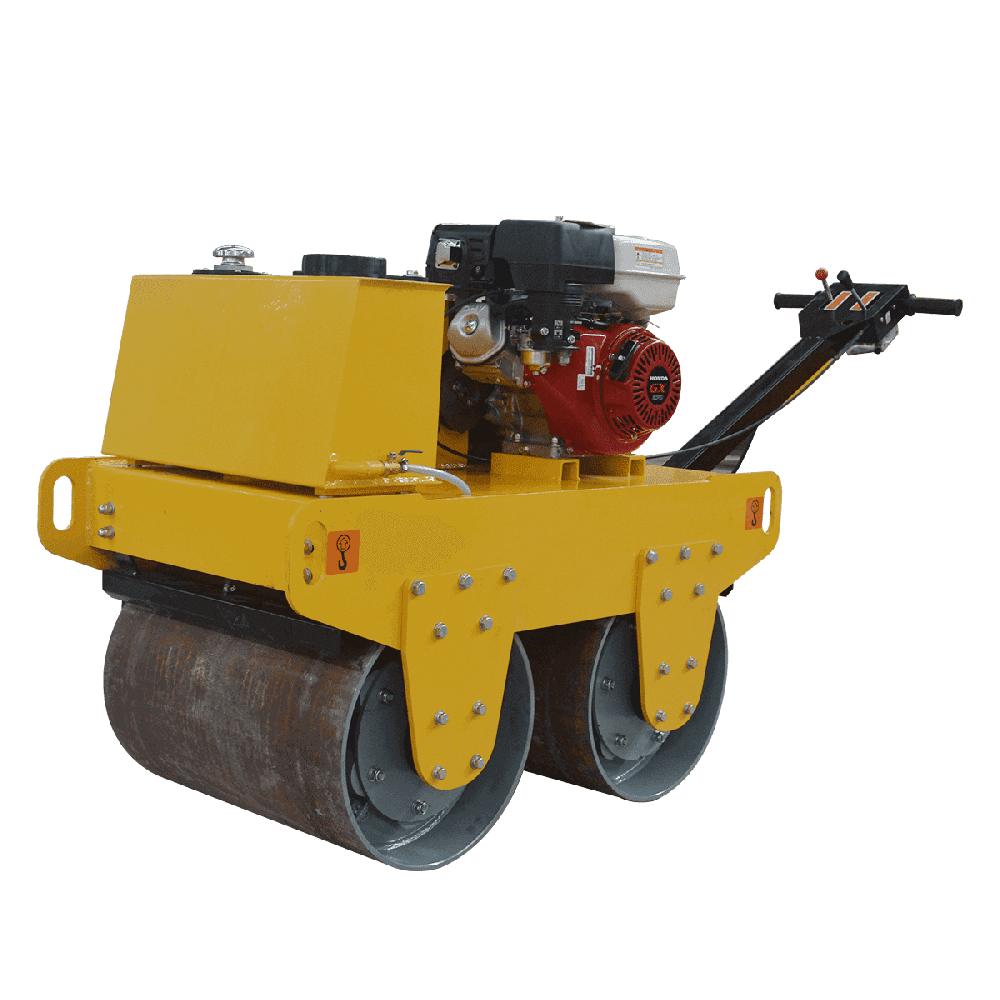
2000kg vibratory tandem road roller
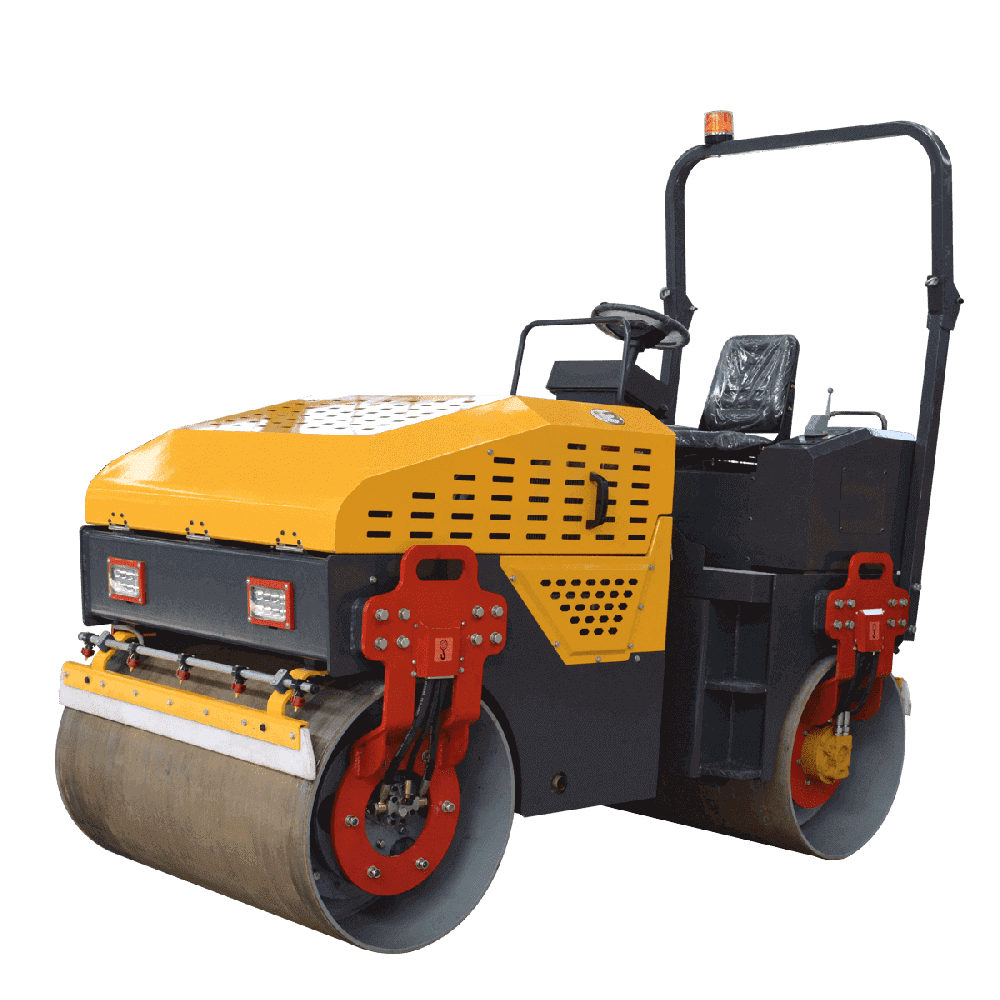
1.5 ton double vibratory road roller
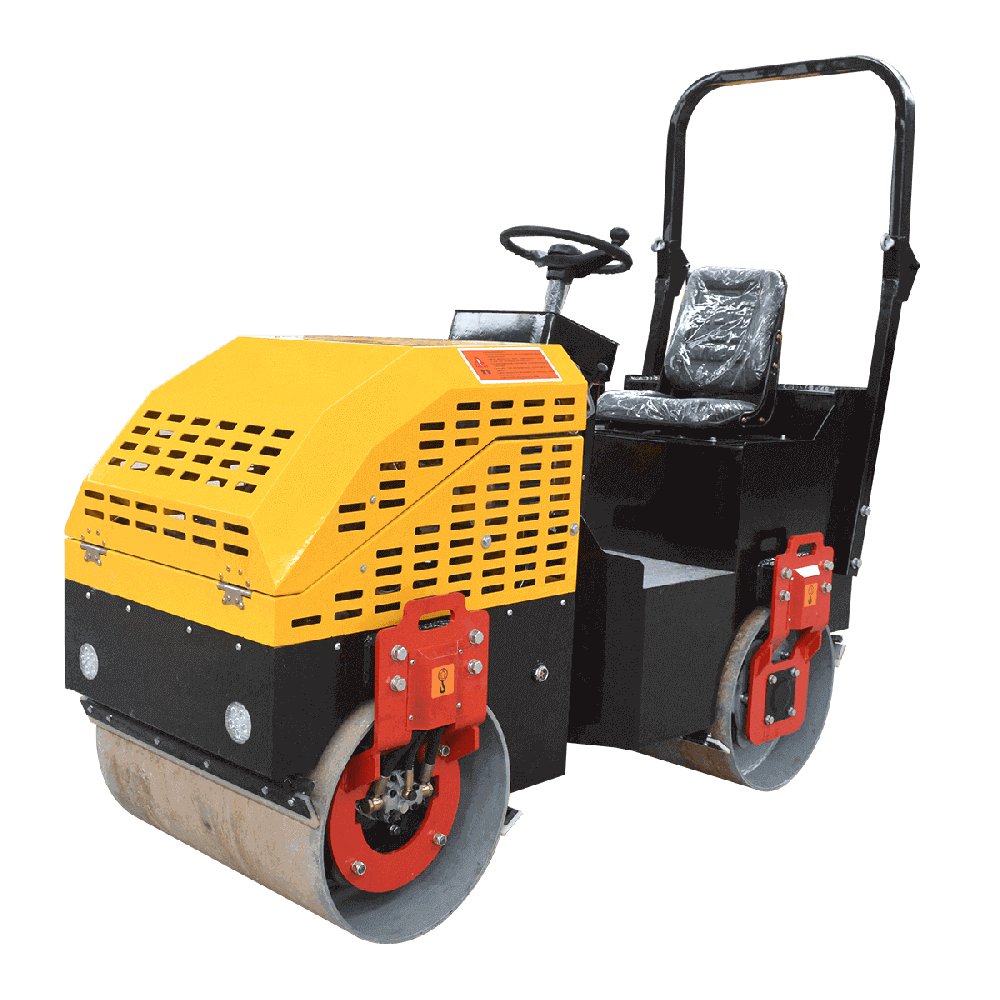
2.5t tandem double drum road roller
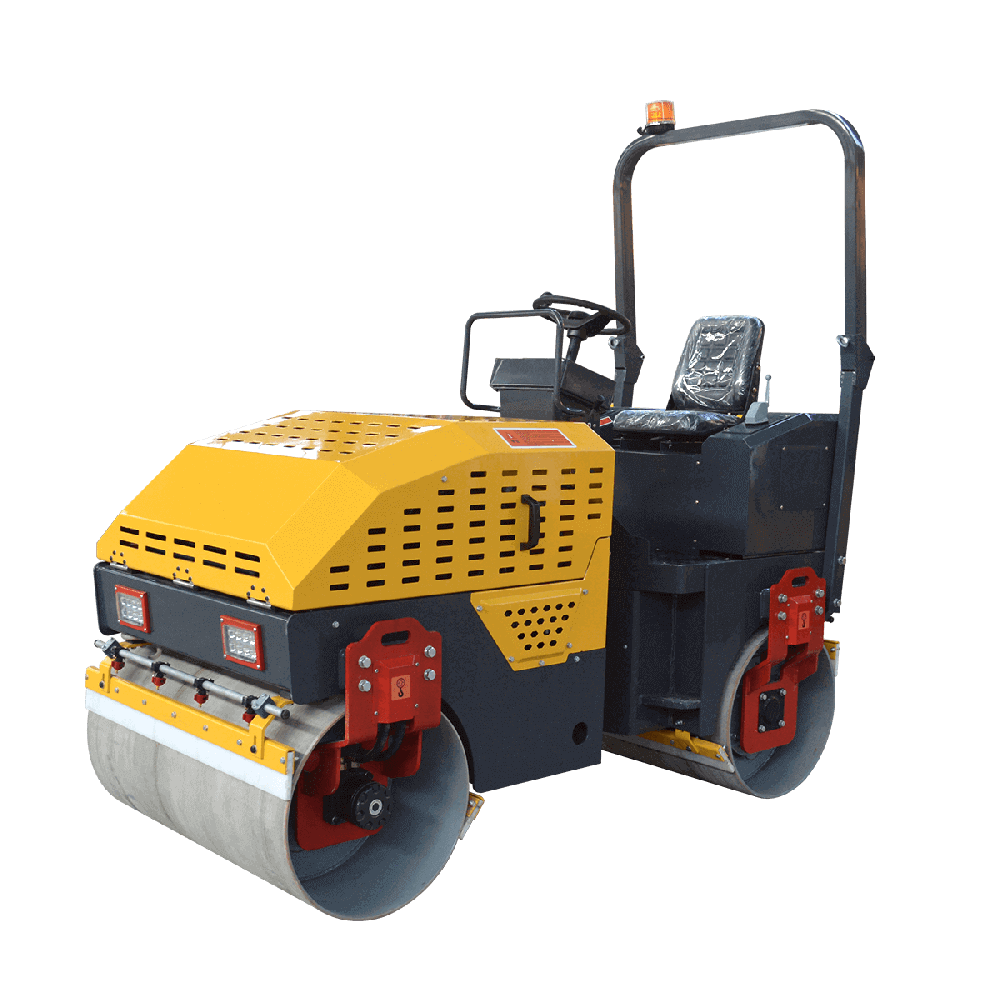
double smooth drum road roller
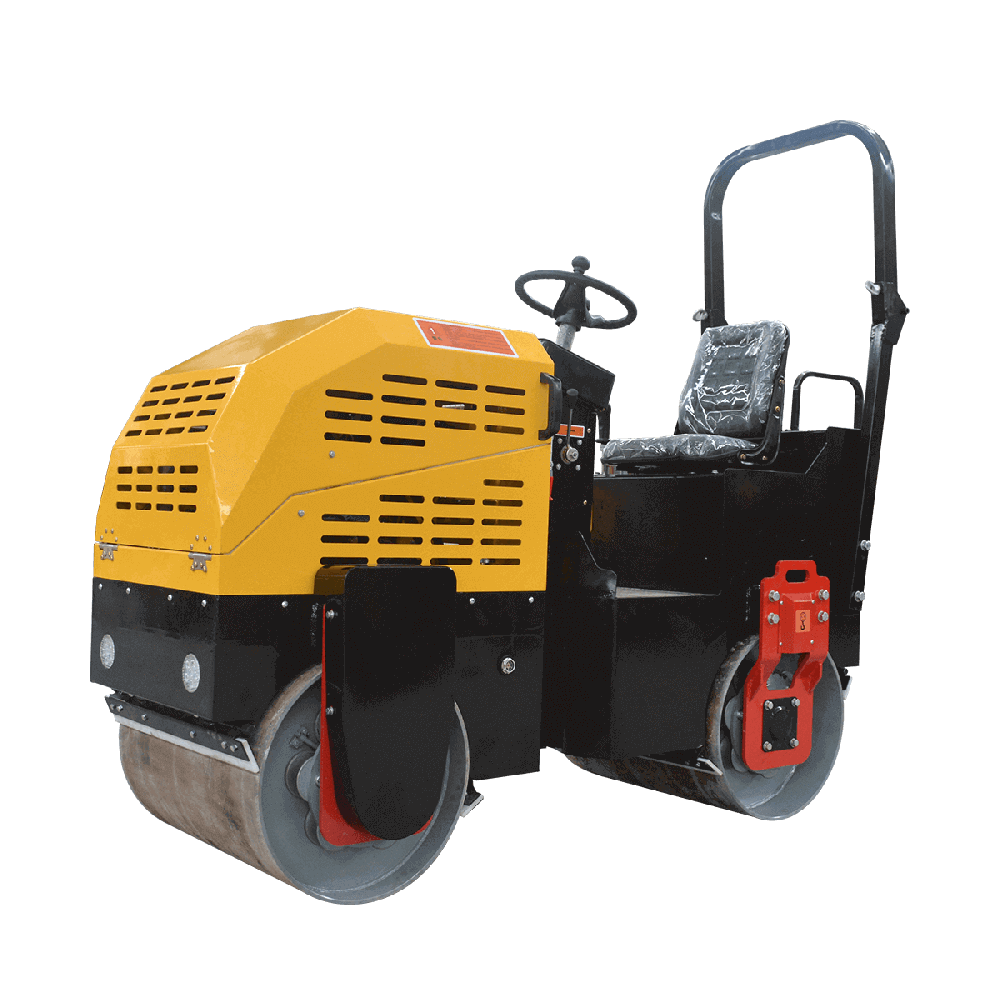
mini single drum road roller
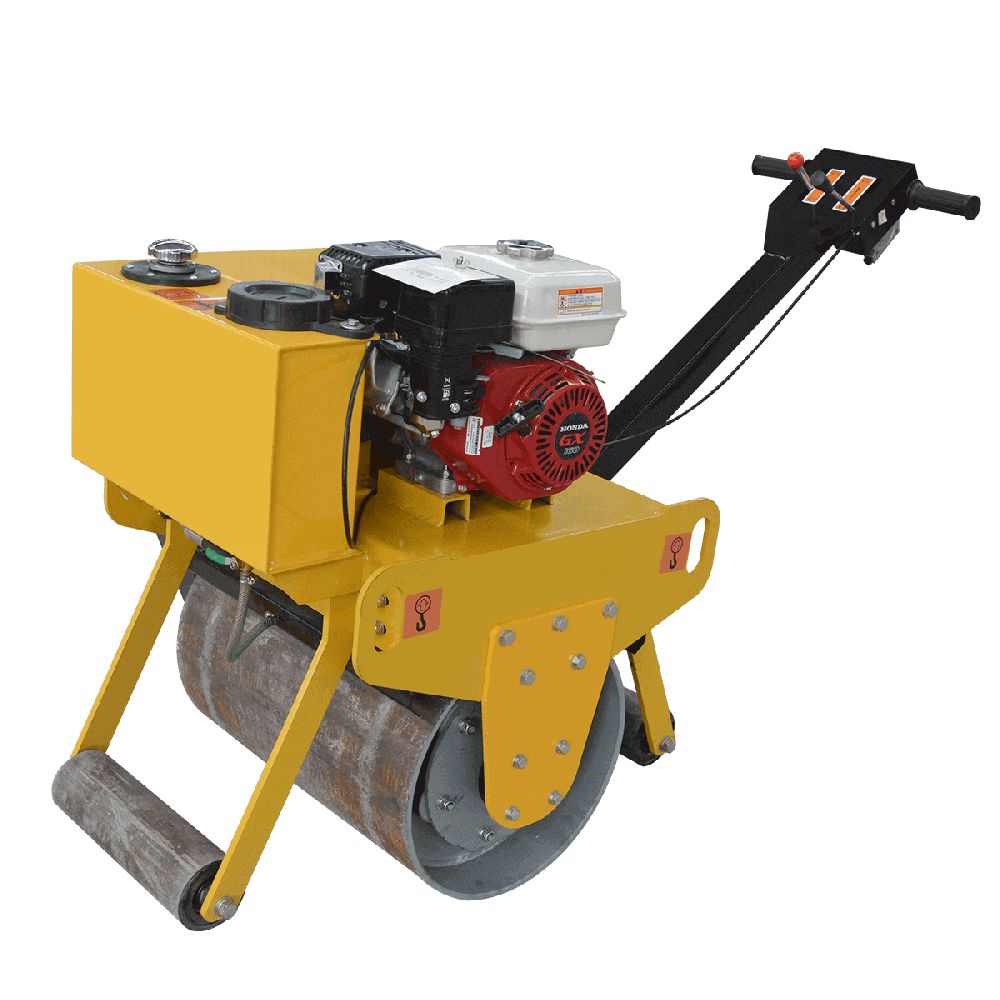

Serveice
Professional road roller manufacturer
- BISON specializes in handling large volume orders.
- Offers various flexible payment options.
- The ultimate source for all your roller accessory needs.
- Bespoke OEM solutions designed for your specific road roller requirements.
- Quick turnaround and rapid shipping directly from BISON factory!
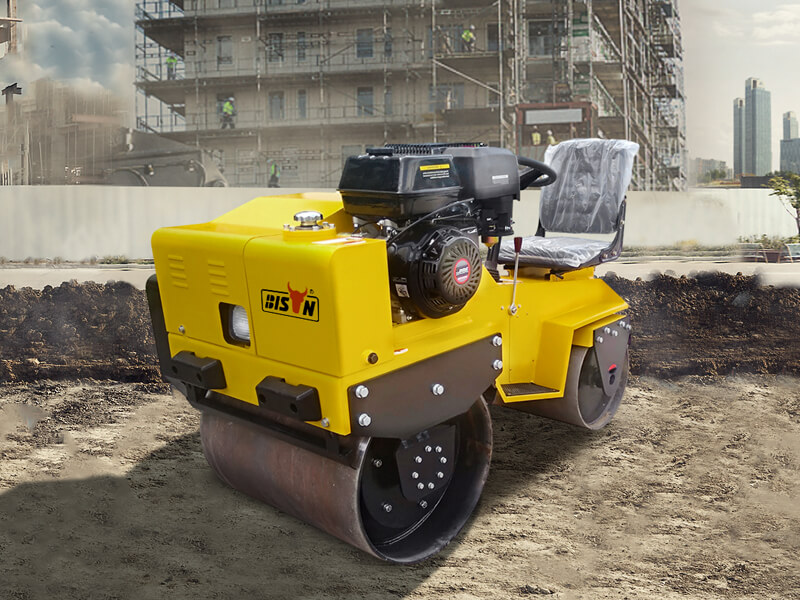
Application industry
- Road construction: This is the industry where BISON rollers are most prominent. They are used to compact soil, gravel, concrete or asphalt in road construction and maintenance. They ensure a stable and solid foundation, helping to achieve the pavement density and leveling required for safe and durable roads.
- Landscaping and foundation engineering: In landscaping projects, BISON rollers are used to prepare the ground, ensuring that the soil is compacted enough to support lawns, paths, and other landscape elements.
- Airport infrastructure: The construction of airport runways and taxiways requires large-scale compaction, and BISON rollers are fundamental to achieving the necessary compaction and leveling.
- Industrial projects: In the development of industrial areas, including factories and storage facilities, BISON rollers are used to prepare and stabilize large areas of ground to facilitate heavy construction and future operational requirements.
Leave Us Your Info
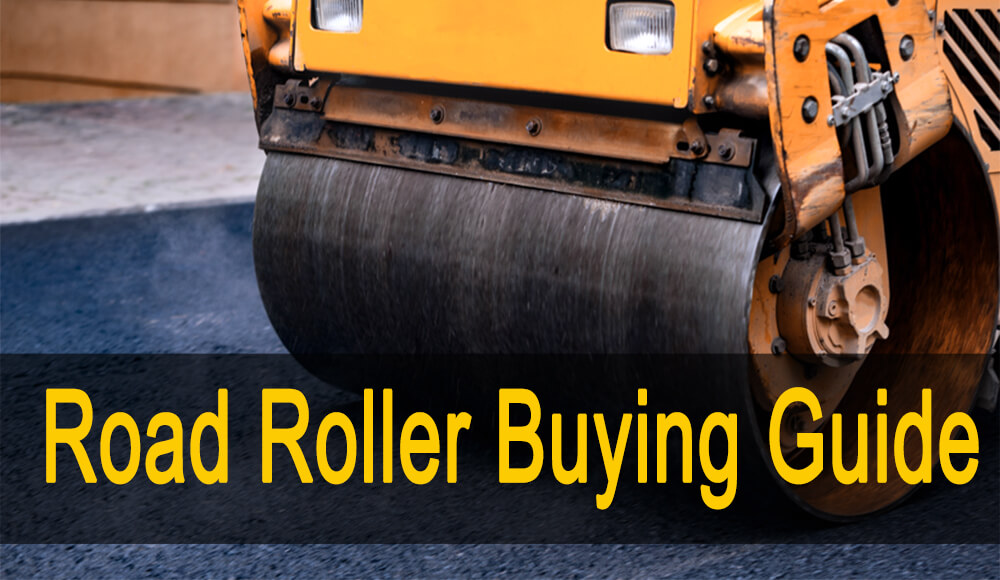
Road rollers are vital machines that are central to construction of smooth, lasting surfaces on roads, parking lots, and a myriad of other projects. These invaluable tools provide means to condense materials like soil, gravel, and asphalt, establishing a robust and secure base and facilitating a polished end result. As their role in construction and road maintenance is paramount, selecting an appropriate road roller is a decisive factor influencing project efficiency and triumph.
This guide is designed to aid potential buyers in cruising through the complex task of selecting the ideal road roller. Given the vast array of road rollers, each with its own unique sizes and attributes, making the right decision may appear challenging. The objective of this all-encompassing manual is to demystify purchasing and offer detailed understanding of the diverse categories of road rollers along with the critical aspects to bear in mind while selecting one.
By the end of this guide, you will have a clearer understanding of the key features to look for in road roller, how to assess the needs of project, and how to make a road roller the right choice for your specific requirements.
What is a road roller?
Also called roller compactor. It uses the weight of the drum and the power of the engine to apply compaction force through vibration. The main purpose is to compact and stabilize surface materials on roads and construction sites. By increasing the density of the material, road rollers help reduce voids and achieve an even, level surface. This process creates durable and smooth roads, minimizes the risk of future subsidence or damage, and ensures the durability of infrastructure, whether it is on a highway, driveway, parking lot or large industrial site.
Road roller functions and components
Drum: The heavy cylindrical component responsible for the compaction process. Smooth rollers are used for asphalt and other smooth surfaces.
Engine: Provides the power needed to drive the drum and the machine itself, and is usually available in a variety of power levels to suit different project sizes.
Cab: The section where road roller is operated, designed to prioritize operator's comfort and view. Generally, it's equipped with cutting-edge control systems for effortless handling.
Water tank and spray system: These are incorporated to avert the adhesion of asphalt onto the drum and furnish lubrication, facilitating a seamless process of rolling.
Vibration system: An important feature that improves compaction efficiency (especially on double drum road rollers) by applying additional vibration forces to the surface material.
Understanding these components and their functions is essential to selecting the right road roller to meet your specific project needs, ensuring optimal efficiency and results in any construction environment.
Types of road rollers
Road rollers come in a variety of types, each designed for a specific application and suitable for different types of compaction projects. Here is a detailed description of the main types of road rollers from BISON:
Vibratory road rollers
Equipped with one or more vibrating drums, vibratory road rollers function through the oscillation during their operation. The combination of this vibration and road roller's weight substantially enhances impact of compaction.
Vibratory road rollers are especially effective for compaction of granular, mixed soils, and asphalt due to extra force derived from vibrations which work to lessen air gaps and bolster the density of substance.
Advantages:
Capable of compacting a broad spectrum of materials effectively.
Deep compaction can be achieved, suitable for thicker soil layers.
Adjustable vibration amplitude and frequency to suit different materials and conditions.
Single drum road rollers
Single drum road rollers, consist of a broad cylindrical drum at the front and a pair of wheels at the back. The compaction of material is facilitated by drum's weight, and in certain cases, an integrated vibration mechanism may also play a role.
The primary use of single drum road roller is to compact soil, gravel and subgrades, during construction of roads and foundations. Excel in compacting vast areas and exhibit superior handling characteristics on irregular terrain.
Advantages:
Highly maneuverable.
Effective in deep compaction of the base layer.
Typically robust and able to manage compact and coherent terrains efficiently.
Adaptable to a wide range of landscapes.
Double drum road rollers
Also known as tandem road rollers, double drum road rollers are identifiable by their two steel drums positioned at the front and rear. Both drums can vibrate, providing additional compaction force.
Perfect for compressing asphalt to achieve a flat and uniform surface. They ensure even compaction across the entire drum width, making them ideal for road finishing.
Advantages:
Ideal for creating a smooth, well-finished surface.
Even pressure and compaction on both drums.
Effective for areas with heavy traffic due to consistent surface quality.
Every kind of road roller serves a particular purpose, making each indispensable in numerous construction circumstances. Gaining insight into the distinctive attributes and uses of vibrating, single-drum, and double-drum road rollers can guide you in selecting the appropriate machinery for your construction requirements.
Key considerations for purchasing a road roller
Selecting the appropriate road roller for your task necessitates thorough assessment of several aspects to confirm a well-informed choice. Here are the primary points you should ponder upon:
Engine type
Engine type is fundamental factor that affects road roller's performance and suitability for specific tasks. Road rollers are typically equipped with either diesel or gasoline engines.
Diesel engines: Typically offer more power and fuel efficiency, and are suitable for heavy-duty applications.
Gasoline engines: May be less powerful, but are generally cheaper and adequate for lighter tasks.
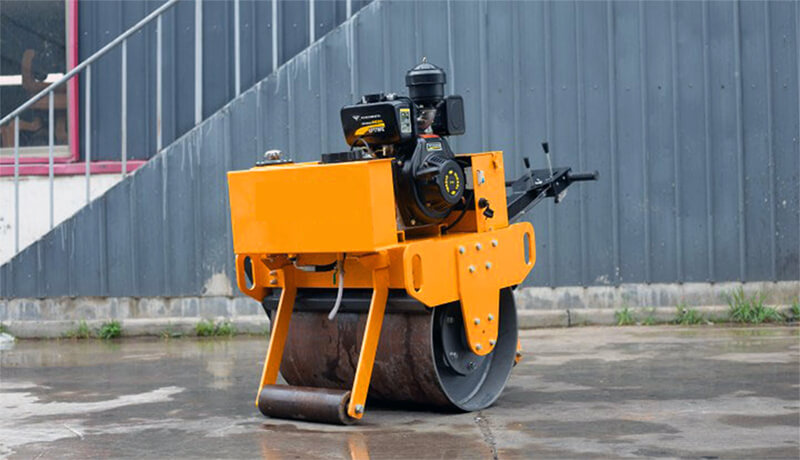
Engine output and emissions
The power output and emissions of a road roller's engine are critical to both performance and regulatory compliance. Look for enough horsepower to meet your specific compaction needs. Also make sure the engine complies with local environmental regulations to avoid fines and promote sustainable development.
Size and drum width
The size of a road roller, including the size and width of its drum, directly affects its capabilities and suitability for specific project types. Larger projects typically require a wider drum for increased efficiency. For narrow or hard-to-reach areas, a narrower machine may be necessary.
Compacting capacity
How effectively a road roller compacts material determines its suitability for different construction tasks. Ensure that road roller's compaction force corresponds with type of materials to be managed, whether that's cohesive soils, granular materials, or asphalt, and align the compaction prowess of road roller to the depth requirements of project.
Project size and type
Project details will dictate the kind of road roller essential for your endeavor. Smaller infrastructure like driveways or minor paving areas may only necessitate a compact, agile road roller. However, for grand-scale projects like highways, airports, or extensive parking lots, robust and larger road rollers are a requirement.
Project type and pavement type
Road construction: A powerful, versatile road roller that can handle a variety of pavements and materials is needed.
Landscaping: A lightweight, smaller road roller may be more appropriate.
Pavement type: Consider whether you will be working with gravel, asphalt, clay or concrete, as this will influence the choice of road roller and vibration settings.
Features
Road rollers have a range of features designed to enhance functionality and operator comfort:
Ergonomics: Involves comfortable seating, adaptable controls, and excellent visibility for operator.
Technology: like GPS, compaction assessment systems, and telematics for instantaneous monitoring and information gathering.
Safety: features encompass ROPS (rollover protection system), seat belts, and an emergency halt function.
Brand reputation
The brand of roller can significantly influence your purchasing decision based on reliability, after-sales service, and parts availability.
Research reviews and ratings of different brands. Look for brands that offer excellent customer service and readily available parts and technicians for maintenance and repairs.
New vs used
Deciding whether to buy a new or used roller can affect your budget and the life of your equipment. New road rollers cost more upfront but come with the latest features, a full warranty, and a longer lifespan. Used road rollers are more affordable initially but may require more maintenance and have a shorter remaining lifespan. Carefully service record and state of machine with diligence.
Additional expenses
Beyond the purchase price, owning and operating a road roller incurs additional costs:
Servicing and fixes: scheduled maintenance, changing of parts, and unforeseen malfunctions.
Insurance: providing damage and liability coverage for the equipment.
Operational costs: fuel, operator wages, and potential downtime.
Selecting the appropriate road roller necessitates a comprehensive review of your unique demands, along with the diverse characteristics and specifications of the different models in the market. These crucial aspects to think about: engine type, output and emissions, dimensions and drum width, compaction abilities, projects, features, brand credibility, and the decision between old and new versions, will assure that the equipment you invest in aligns effectively with your project's needs. In addition, considering additional costs will help you budget more accurately and avoid unexpected expenses.
Maintenance and care of road rollers
Implementing appropriate care and upkeep for road rollers is crucial in securing their durability, effectiveness, and safe operation. By keeping these machines in prime condition, you lessen the chances of operational halts, maximize work output, and decrease the likelihood of expensive equipment fixes.
Effective maintenance and care of road rollers includes ongoing inspections, proper lubrication, and adherence to cleaning and fluid management procedures. It is also essential to pay attention to tire and drum care, electrical systems, proper storage, and ensuring that operators are well-trained. By strictly following these practices, you can significantly extend the life of your road roller, improve its performance, and ensure safe operation.
Summary
In this article, BISON have explored various aspects of road rollers, including their types, applications, and key aspects of maintenance and care. BISON road rollers are carefully designed to meet high performance and durability standards. To sure excellence and effectiveness of your project's completion. Choose a BISON road roller for your compaction needs and experience the difference in performance and reliability. Learn more about BISON road rollers and how it can revolutionize your construction operations.
Faqs
What distinguishes a road roller from a bulldozer?
A bulldozer is used to clear construction sites. It removes topsoil, leaving stable ground for the construction of buildings and roads. A road roller is used to compact the base and sub-base layers in road construction.
Which type of roller is best for roadbeds?
Twin-wheel rollers are commonly used in most general civil engineering projects, compacting fine-grained soils and asphalt. They are often used to compact base and top layers in road construction projects, including driveways and parking lots.
table of content
